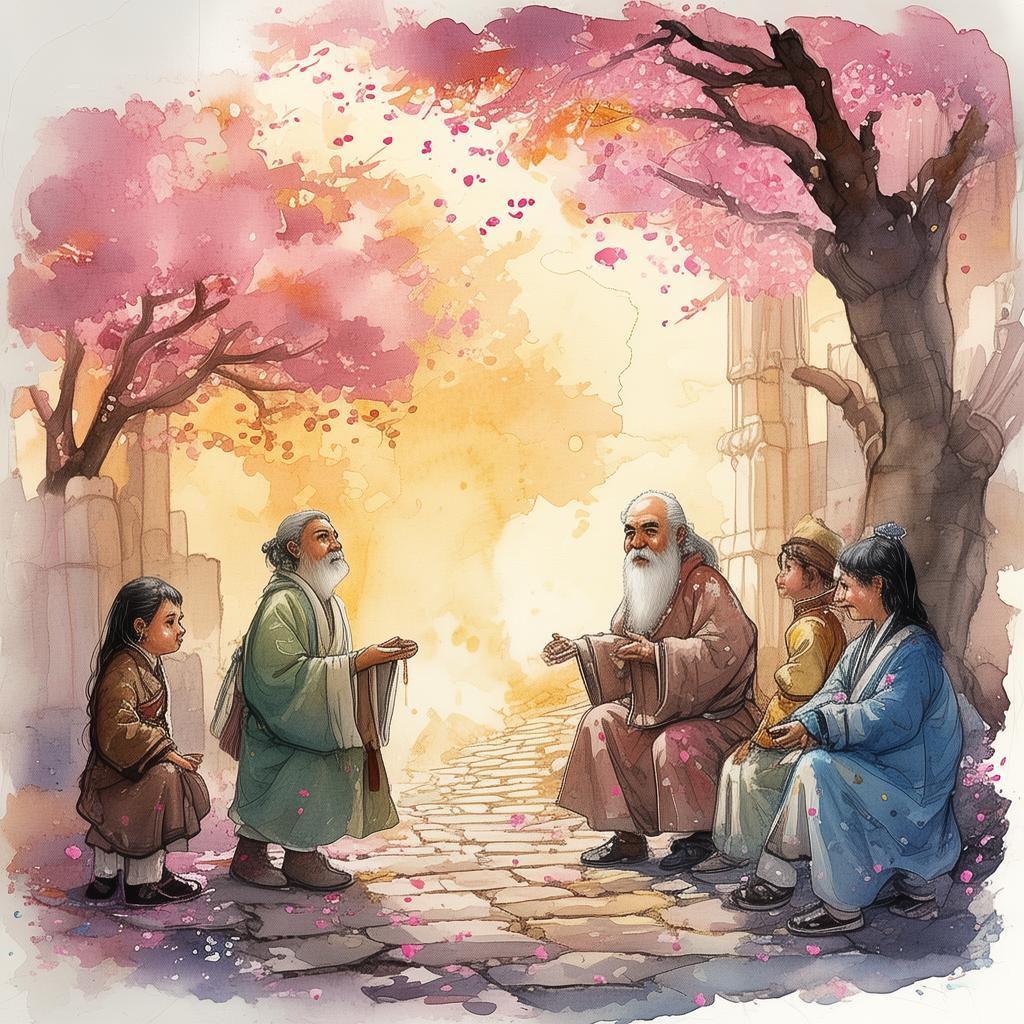Waste Not, Want Not: The Secret of the Abundant Garden
Once upon a time in the bustling town of Verdant Valley, there lived a young and ambitious gardener named Liu Mei. Her garden was the talk of the town, known for its vibrant flowers and lush vegetables. However, Liu Mei noticed a strange phenomenon every year: her garden would flourish during the growing season but wither away in the winter, leaving behind heaps of compostable waste.
One cold winter morning, Liu Mei decided to explore the source of her garden's seasonal decline. As she wandered through the rows of withering plants, she stumbled upon an old, forgotten shed at the edge of her property. Curiosity piqued, she pushed open the creaky door and discovered a peculiar sight: a garden teeming with life, even in the dead of winter.
Inside, she met an elderly gardener named Master Feng, who explained that his garden thrived because of a secret he had been keeping for years. Master Feng had discovered a method of composting that turned waste into a nutrient-rich soil, ensuring his garden's continuous growth.
Liu Mei was amazed and eager to learn. Master Feng revealed that the key to his composting process was the "Waste Not, Want Not" principle, a philosophy that emphasized the importance of sustainability and waste reduction. He showed her how to collect and process garden waste, kitchen scraps, and even animal manure into a potent compost that would enrich her soil.
Armed with Master Feng's knowledge, Liu Mei set to work. She began to apply the Waste Not, Want Not principle in her own garden, turning her compost heap into a thriving source of nutrients. As the seasons changed, her garden flourished, producing more and more abundant crops, even in the coldest months.

Word of Liu Mei's success spread like wildfire. Neighbors and friends began to visit her garden, marveling at its vitality. Liu Mei saw this as an opportunity to share Master Feng's wisdom with the community. She organized workshops and talks, teaching others how to compost and live more sustainably.
As more people embraced the Waste Not, Want Not philosophy, Verdant Valley began to transform. Waste that was once discarded became a valuable resource. Gardens, once neglected, were rejuvenated with composted soil. The town's air was cleaner, and the environment was healthier than ever before.
One day, Liu Mei received a letter from Master Feng, who had since passed away. The letter contained a final piece of wisdom: "The secret to an abundant garden is not in the soil, but in the heart. It is our responsibility to care for the Earth and each other, and in doing so, we will all reap the rewards of abundance."
Inspired by Master Feng's words, Liu Mei continued to lead the community in their sustainable journey. Verdant Valley became a beacon of hope, demonstrating that with a little effort and a lot of heart, waste reduction could lead to a world of abundance.
And so, Liu Mei's garden became a symbol of hope and sustainability, proving that even in the face of waste and neglect, life could flourish. The Waste Not, Want Not philosophy spread far and wide, inspiring others to join the movement and create a more abundant and sustainable future for all.
✨ Original Statement ✨
All articles published on this website (including but not limited to text, images, videos, and other content) are original or authorized for reposting and are protected by relevant laws. Without the explicit written permission of this website, no individual or organization may copy, modify, repost, or use the content for commercial purposes.
If you need to quote or cooperate, please contact this site for authorization. We reserve the right to pursue legal responsibility for any unauthorized use.
Hereby declared.









